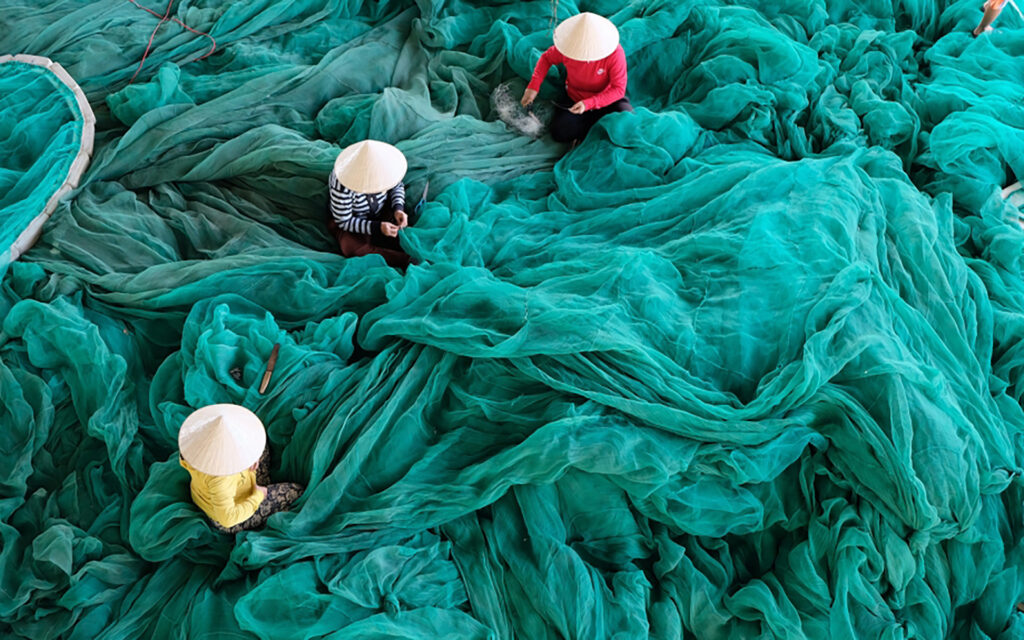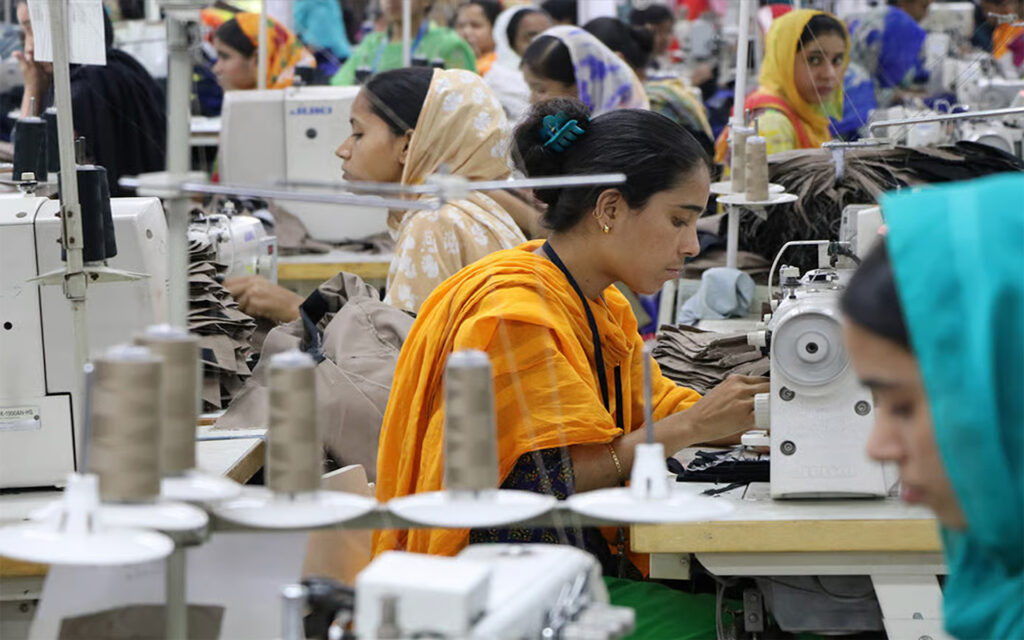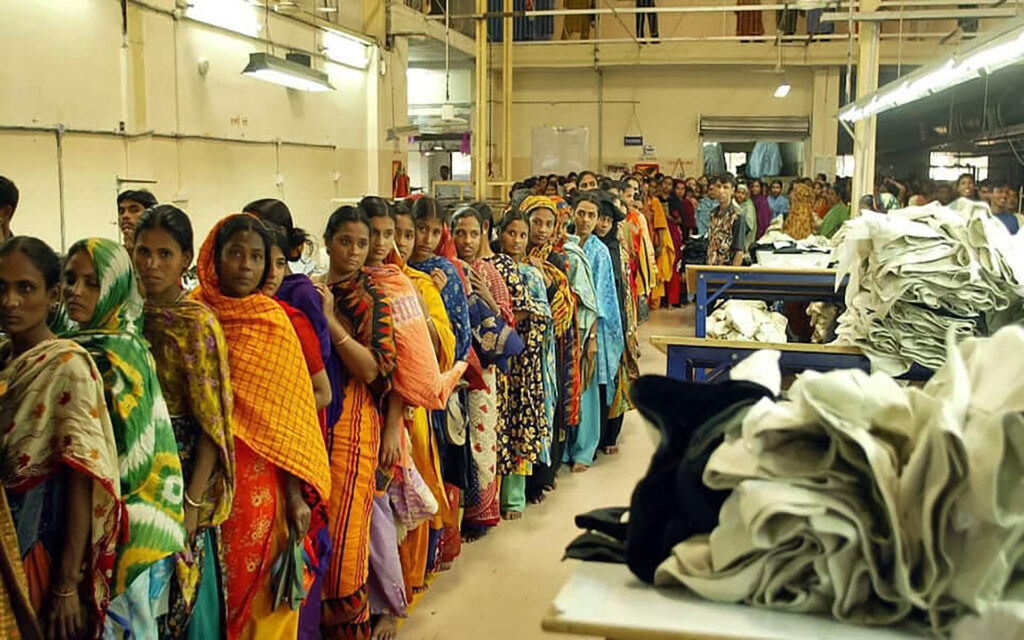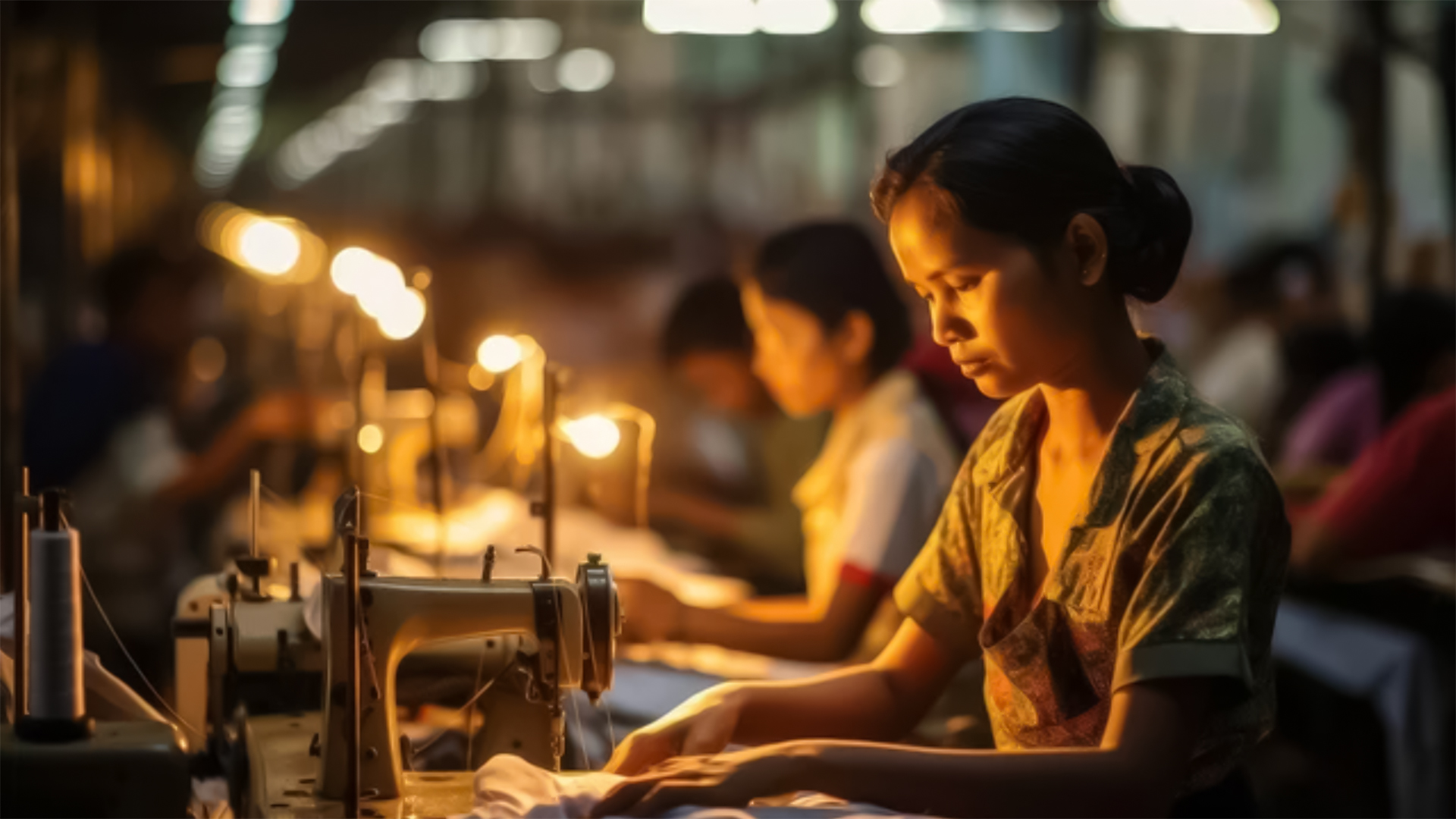Fashion is an industry where many workers engage in its extensive production chain. Achieving their well-being at work should be a priority for every employer.
However, globalization has led to the practice of offshoring, which allows the supply chain to be outsourced to other suppliers in countries where labor and tax conditions allow manufacturing costs to be reduced.
The lack of traceability implies both a loss of control and knowledge of the conditions of the workers.

Physical, mental and social well-being
The physical, mental and social well-being of workers in the fashion sector is threatened due to the unsafe and unsanitary conditions in which they work.
Many of them face long working hours with extremely low wages, forced labor and in many cases even live in dangerous situations. Harassment, violence, discrimination, and even the removal of the right to freedom of association to join unions that represent them are other realities they face.
Low wages
The UN recognizes that a living wage is a human right, as stated in the Article 23 of the Universal Declaration of Human Rights. It states that ‘everyone at work has the right to just and satisfactory remuneration which ensures to himself and his family an existence in conformity with human dignity and which shall be fulfilled, if necessary’.
A living wage is a remuneration for work that should cover the basic needs of the worker and his or her family, such as food, rent, clothing, transportation, education, and health care.
Likewise, according to the Clean Clothes Campaign, a living wage should allow for savings, so that workers do not remain in a vulnerable situation, not being able to make short and long-term plans in their lives while running the risk of ending up in debt when they need unforeseen additional financial expenses.
But the reality is that millions of workers are exploited as cheap labor in countries in the Global South that have no or insufficient public assistance services.
According to a report by The Industry We Want, workers in major clothing and footwear-producing countries receive, on average, only 55% of the wage they need to achieve a decent standard of living.
That is why many must skip meals to save money or are even forced to have their children start working at a young age to help their families because the income is insufficient.

Bangladesh Case
Last November, Bangladesh’s Ministry of Labour proposed a new minimum wage for the country’s garment workers of 12,500 taka (US$113/€100).
That is well below the unions’ proposed demand of 23,000 takas, a wage that the Clean Clothes Campaign says is the minimum needed to put workers above the poverty line.
But factory owners say they cannot afford such a payment, with some even saying it could put some subcontractors out of business.
Overtime work
Thanks to the high demand and overproduction faced by the industry, firms have great power over the supply chain, costs and lead times.
Therefore, suppliers must produce large orders in a limited time and with a competitive value.
According to Fashion Revolution, 88% of major fashion brands still do not disclose their annual production volumes, which hides the scale and truth of overproduction.
As a result, as the Clean Clothes Campaign states, factory managers often pressure workers to work 10 to 12 hours a day, even 16 to 18 hours, as order deadlines approach.
The pressure to meet production deadlines often leads to excessive overtime (even though legislation prohibits it), leaving workers physically and mentally weakened.
While many workers rely on overtime pay to supplement their low wages, many factories do not pay overtime.
Physical well-being
The lack of healthy working conditions in which workers live daily can cause harm to their health as they are often exposed to hazardous materials, chemicals or dust, often without safety or ventilation equipment.
Several epidemiological studies have shown that the negative effects of long working hours can lead to risks of cardiovascular disease; chronic fatigue, stress; depression, and anxiety, even affecting the quality of sleep.
All this has to be added to the lack of health care. In the event of an injury or accident, it is common to have medical expenses deducted from your wages.
Emotional well-being
But to achieve the full well-being of workers, it is not only necessary to pay a living wage and better working conditions. Space should also be given to understand their mental and emotional health.
The long hours and forced labor they face daily mean that they are separated from their families for a long time without receiving the unconditional support that everyone needs from their closest circle.
This is in addition to the lack of privacy, as they do not have time or money, so they cannot afford to engage in leisure activities.

Feminization of work
Of the millions of garment workers worldwide, the majority are women.
And while it is true that poverty in the sector affects both men and women, it is women who experience many more obstacles to being able to get out.
This phenomenon, called the “feminization of work”, is a term that is not only used to define the sharp increase in the participation of women in the industrial sector but also to underline the fact that their work is increasingly precarious and unpredictable.
Women are also increasingly susceptible to discrimination due to pregnancy, and sexual, physical and verbal abuse.
“It only takes four days for a CEO of one of the world’s top five fashion brands to earn the same as a Bangladeshi garment worker in her lifetime,” Oxfam International’s Reward Work, Not Wealth report.
There is no doubt that the fashion industry must ensure the physical, mental and social well-being of its workers throughout the vast supply chain by promoting their human rights. You must consider the long-term and short-term results not only for the pockets of the big brands but for the lives of so many workers who make the growth of this sector of the market possible.





